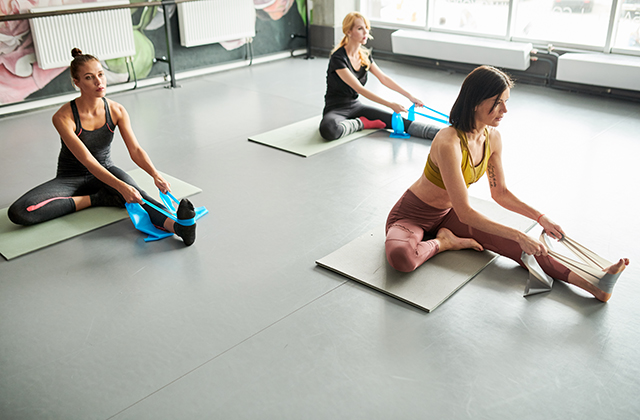Embarking on the path to becoming a Pilates instructor is an exciting journey filled with the promise of helping others achieve physical well-being and balance. However, before you take the leap into this fulfilling career, there are key insights to consider that can shape your success and satisfaction in the role. In this article, we’ll explore these insights and shed light on the importance of a Pilates course in shaping your expertise.
Understanding the Essence of Pilates:
Before delving into the technicalities of becoming an instructor, it’s crucial to have a profound understanding of what Pilates truly entails. Pilates is not just a set of exercises; it’s a holistic approach to physical fitness that emphasizes core strength, flexibility, and mental focus. Understanding the philosophy behind Pilates will not only enhance your teaching abilities but also deepen your appreciation for its transformative power.
Assess Your Personal Passion and Commitment:
Passion is the driving force behind any successful career, and becoming a Pilates instructor is no exception. Ask yourself why you are drawn to Pilates and teaching. Is it a genuine passion for helping others improve their health and well-being? Assess your commitment to continuous learning and personal growth, as these qualities will set the foundation for your success as an instructor.
Explore Accredited Pilates Courses:
While passion is crucial, formal education is equally essential. Enrolling in an accredited Pilates course is a pivotal step in acquiring the necessary knowledge and skills to become a competent instructor. Look for programs recognized by reputable Pilates organizations that cover anatomy, teaching techniques, and class management. A comprehensive Pilates course will not only equip you with the technical know-how but also provide hands-on experience to build your confidence.
Hands-On Experience Matters:
Pilates is a discipline that demands a hands-on and personalized approach. Seek opportunities for practical experience, whether through internships, workshops, or observation hours. A Pilates course that includes practical training components will expose you to different teaching styles, client needs, and real-world scenarios. The ability to apply theoretical knowledge in practical settings is invaluable when you step into the role of an instructor.
Building a Strong Foundation in Anatomy:
Understanding the human body is fundamental to effective Pilates instruction. A solid foundation in anatomy will enable you to tailor exercises to individual needs, address specific concerns, and create well-rounded, safe workouts. A reputable Pilates course will include in-depth anatomy modules, ensuring that you grasp the biomechanics behind each movement and can communicate this knowledge to your clients.
Embrace Continuous Learning:
The world of fitness is dynamic and ever-evolving. Embrace a mindset of continuous learning to stay abreast of new techniques, research, and trends in Pilates. Attend workshops, conferences, and advanced courses to deepen your expertise and stay inspired. A commitment to ongoing education not only enhances your credibility as an instructor but also keeps your classes fresh, engaging, and effective.
Cultivate Effective Communication Skills:
Being a Pilates instructor is not just about demonstrating exercises; effective communication is key. Develop the ability to articulate instructions clearly, offer constructive feedback, and create a positive and motivating class environment. A Pilates course that incorporates communication skills training can significantly enhance your teaching capabilities and contribute to client satisfaction.
Navigating the Business Aspect:
Becoming a Pilates instructor involves more than just mastering the exercises and teaching techniques. Understanding the business aspect of being an instructor is equally important. Learn about marketing, client management, and business ethics to build a successful and sustainable career. Some Pilates courses may offer modules or guidance on the business side of being an instructor, providing you with a holistic skill set.
Create Your Unique Teaching Style:
While formal education is essential, don’t forget to infuse your personality and unique style into your teaching. Clients are drawn not only to expertise but also to instructors who are authentic and relatable. Use your training as a foundation and then explore ways to make the practice your own, creating a memorable and enjoyable experience for your clients.
In conclusion, the journey to becoming a Pilates instructor is both rewarding and challenging. By understanding the essence of Pilates, committing to continuous learning, and enrolling in an accredited Pilates course, you set the stage for a fulfilling career. Embrace practical experience, cultivate effective communication skills, and navigate the business aspect to ensure a well-rounded and successful journey as a Pilates instructor. Remember, the key to making a lasting impact lies not just in mastering the exercises but in inspiring and empowering others on their wellness journey.



